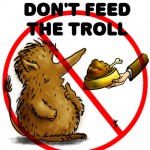I spent a few days last week at the Innovation Cubed Conference in Orlando. While there, I heard two instances of use of a term that I absolutely hate, at least when it is used by innovation professionals to define in some manner the innovation processes of their respective organizations. This word is:
PATENT WHITESPACE ANALYSIS
Not only do I hate this phrase, I think that companies that utilize patent (or IP) whitespace analysis to define their product and technology development pathways are quite possibly setting themselves up for failure. And, it's bad enough that a single innovation project might fail as a result of the faulty data inputs that can occur from relying on whitespace assessments, but I think that most corporate processes incorporating patent whitespace analysis are based upon faulty methodology, thus setting the organization up for sustainable failure. For the uninitiated, when applied to the patent world,



